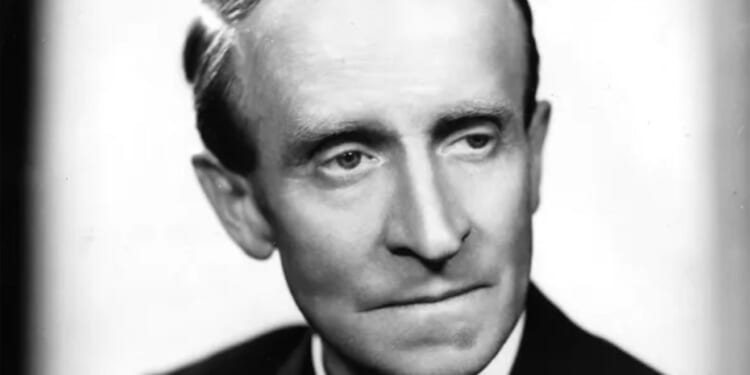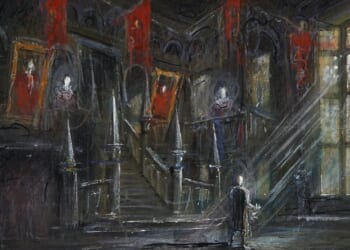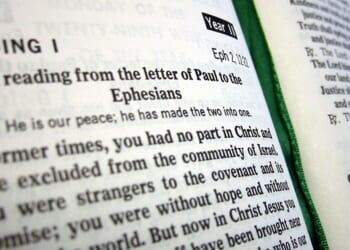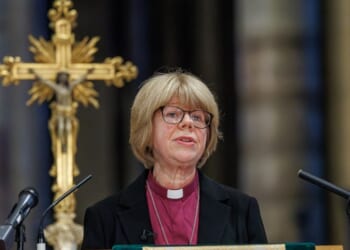THE Victorian ideal of Christian manliness — so alien in today’s world — was at its height in the decade of John Buchan’s birth. The phrase had been brought into popular consciousness in a series of pamphlets published by the Religious Tract Society in the late 1860s; it found its fullest expression in an influential book published in 1879, The Manliness of Christ, by Thomas Hughes, perhaps the most famous and devoted pupil of Dr Arnold at Rugby School.
For Hughes (best known now as the author of Tom Brown’s Schooldays, although in his day a leading lawyer, Liberal politician, and founding father of Christian Socialism), Jesus exemplified Christian manliness in his self-sacrifice and moral courage, living for others rather than for himself.
In his seminal study of the subject (The Sinews of the Spirit, 1985), Norman Vance portrays Buchan as one of the last great exemplars and exponents of Christian manliness, bracketing him with his fellow Free Church Presbyterians Sir William Smith (founder of the Boys’ Brigade) and Eric Liddell, of Chariots of Fire fame. For Vance, Buchan’s Christian manliness was expressed in “a sense of the value of physical hardihood, an uncomplicated patriotism, a firm moral sense, and a simple unobtrusive piety”.
CHRISTIAN manliness is often bracketed with Muscular Christianity, and the image of vigorous, fit, clean-limbed, and chivalrous men pursuing wholesome and worthwhile lives with plenty of outdoor exercise. Buchan’s heroes do often conform to this stereotype — in the words of Benny Green, “like half the games masters of the Empire, Buchan thought that cold baths and long walks in the heather were better calculated to boost a fellow’s religiosity than a roll in the clover.” (How different they are in that respect from James Bond, that other popular hero created by a 20th-century Scottish thriller-writer.)
But it would be wrong to locate Buchan in the company of the rather philistine public-school masters and arch-imperialists who were the main apostles of Muscular Christianity, placing more emphasis on “muscular” than “Christian”. The advocates of Christian manliness were a more sensitive and a more spiritual and theologically informed company, including the novelist and Anglican clergyman Charles Kingsley, the Poet Laureate, Alfred Tennyson, and the Anglican theologian F. D. Maurice.
IF A biblical text informs the idea of Christian manliness, it is surely the opening verses of Hebrews 12: “Let us lay aside every weight, and the sin which doth so easily beset us, and let us run with patience the race that is set before us.” I can still vividly recall my prep-school headmaster saying those words more than 65 years ago. They have stayed with me ever since.
I suspect that it was a text that Buchan, too, heard early in his life, and that underpinned his belief that (in the words of his biographer, Ursula Buchan), “Each unforgiving minute must be filled with sixty seconds worth of distance run, and that happiness is not to be sought, but might be hoped for as the result of achievement, following self-denial.”
The idea of running with patience the race that is set before us, with its Calvinist sense of Providence and perhaps even of Predestination, also brings to mind Eric Liddell, as does the closing verse of the passage: “Wherefore lift up the hands which hang down, and the feeble knees; And make straight paths for your feet, lest that which is lame be turned out of the way; but rather be healed.”
There is more than a hint of muscular Christianity here — of bucking up and pulling yourself together, lifting up your limp arms and your feeble knees — but this passage is much more than an injunction to cultivate a healthy body and a spirit of athleticism. It is significant that the following verse reads: “Follow peace with all men, and holiness, without which no man shall see the Lord.” It is as much about determinedly pursuing the ways of peace — and justice — as it is about being fleet of foot and strong of arm.
VANCE suggests that “John Buchan indulged in the fantasy that simple manliness could preserve for righteousness a world order threatened by ever-present anarchy and recessive primitivism.”
Yes, there is a naïvety to his idealism: could a reincarnation of the Gorbals Die-Hards — those resourceful ragamuffins brought together under the benign Christian patronage of the retired grocer Dickson McCunn, recruited from the same depressed area in which William Smith started the Boys’ Brigade — really turn the tables on the drug- and alcohol-fuelled gangland crime of modern Glasgow? Can our increasingly violent and extremist culture be turned around by the activities of latter-day Richard Hannays and Sandy Arbuthnotts, with their chivalrous behaviour and dashingly gung-ho, can-do attitudes?
Of course, it’s not as simple as that. But there is still a part for good men and women (we should remember that Christian manliness was not in its essence a sexist construction) to play. We can do our bit, individually and with others, to champion order against chaos, to preserve civilised values in the face of anarchy and barbarism, and to stand for what is decent and honourable.
We can all point from our own experience to the impact that a display of altruism, a gesture of kindness, and even just a smile can have in cutting through and combating what often seems like the prevailing and increasing disease and brutality of contemporary culture and society.
WE WILL often fail — we are frail, and we depend wholly on God’s grace and forgiveness. But we can at least resolve to run with patience the race that is set before us, however long and tortuous and difficult it is. And we can also heed those words about pursuing peace with all, and cultivating holiness — perhaps by being more inclined to feel gratitude rather than discontent, acceptance rather than complaint, and calmness rather than agitation; perhaps simply by attending to what Buchan himself described as the two most comfortable words in the English language: peace, and joy.
Recalling his time as a young member of Milner’s Kindergarten in South Africa, he writes of recovering there an experience which he had not known since his childhood: moments, even hours, of intense exhilaration, “when one seemed to be a happy part of a friendly universe”. The cause was partly physical, for the long treks had made him very fit in body — muscular Christianity at work again — but it was more than this, because these moments came back to him later in life when his health was far from good.
They transcended human expression, even human thought; they were, rather, glimpses of the peace of eternity: “Peace is that state in which fear of any kind is unknown. But Joy is a positive thing; in Joy one does not only feel secure, but something goes out from oneself to the universe, a warm, possessive effluence of love.
“There may be Peace without Joy, and Joy without Peace, but the two combined make Happiness. It was Happiness that I knew in those rare moments. The world was a place of inexhaustible beauty, but still more it was the husk of something infinite, ineffable, and immortal, in very truth the garment of God.”
The Revd Dr Ian Bradley is Emeritus Professor of Cultural and Spiritual History at the University of St Andrews. This is an edited version of a sermon preached at the John Buchan 150th-anniversary service at Lyne Kirk on 24 August.















